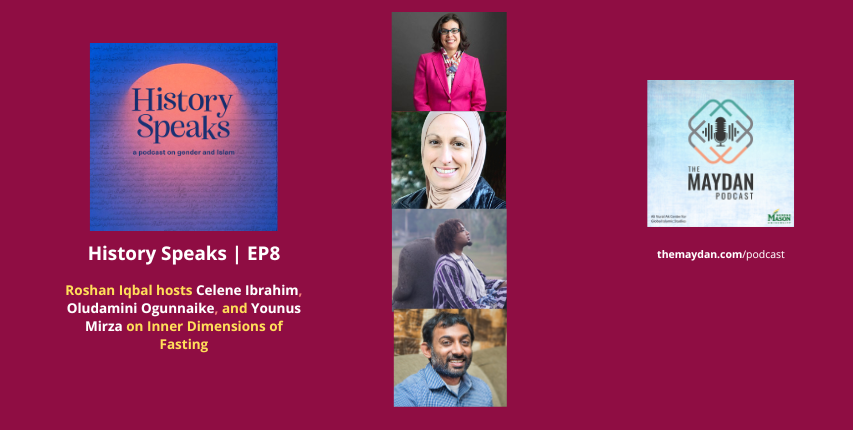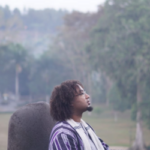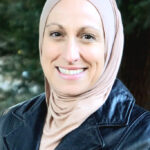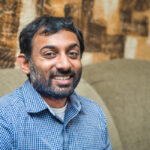
In this episode of History Speaks, Roshan Iqbal is joined by Celene Ibrahim, Oludamini Ogunnaike, and Younus Mirza to explore distinct fasting practices and their inner and outer dimensions in Islamic scholarship, especially focusing on Al-Ghazali’s seminal book, Inner Dimensions of Islamic Practice. Part of a series designed as a classroom resource and a primer for lay audiences, this episode provides valuable insights into a foundational topic.
 Oludamini Ogunnaike is an Assistant Professor of African Religious Thought and Democracy at the University of Virginia specializing in the intellectual and aesthetic dimensions of West African Sufism and Yoruba oriṣa traditions. He received his PhD in African and African American studies and Religion at Harvard University and his A.B. in African Studies and Cognitive Neuroscience from Harvard College. He is the author of Poetry in Praise of Prophetic Perfection: A Study of West African Madīḥ Poetry and its Precedents (Islamic Texts Society, 2020) and Deep Knowledge: Ways of Knowing in Sufism and Ifa, Two West African Intellectual Traditions (PSU Press, 2020). He is currently working on two new book projects: The Logic of the Birds: Sufi Poetry and Poetic Knowledge and Introducing Africana Philosophy (under contract with Equinox Press).
Oludamini Ogunnaike is an Assistant Professor of African Religious Thought and Democracy at the University of Virginia specializing in the intellectual and aesthetic dimensions of West African Sufism and Yoruba oriṣa traditions. He received his PhD in African and African American studies and Religion at Harvard University and his A.B. in African Studies and Cognitive Neuroscience from Harvard College. He is the author of Poetry in Praise of Prophetic Perfection: A Study of West African Madīḥ Poetry and its Precedents (Islamic Texts Society, 2020) and Deep Knowledge: Ways of Knowing in Sufism and Ifa, Two West African Intellectual Traditions (PSU Press, 2020). He is currently working on two new book projects: The Logic of the Birds: Sufi Poetry and Poetic Knowledge and Introducing Africana Philosophy (under contract with Equinox Press).
 Dr. Celene Ibrahim is the author of Women and Gender in the Qur’an from Oxford University Press (2020) and Islam and Monotheism from Cambridge University Press (forthcoming 2022). She is the editor of One Nation, Indivisible: Seeking Liberty and Justice from the Pulpit to the Streets from Wipf & Stock Publishers (2019). Ibrahim holds a doctorate in Arabic and Islamic Civilizations and a master’s degree in Women’s and Gender Studies and Near Eastern and Judaic Studies from Brandeis University, a Masters of Divinity from Harvard University, and a bachelor’s degree with the highest honors from Princeton University. She offers lectures, workshops, and seminars around the world as a trusted voice on issues of religion and civic engagement, spiritual care and chaplaincy, Islamic intellectual history, and women’s studies. She can be reached at celeneibrahim.org.
Dr. Celene Ibrahim is the author of Women and Gender in the Qur’an from Oxford University Press (2020) and Islam and Monotheism from Cambridge University Press (forthcoming 2022). She is the editor of One Nation, Indivisible: Seeking Liberty and Justice from the Pulpit to the Streets from Wipf & Stock Publishers (2019). Ibrahim holds a doctorate in Arabic and Islamic Civilizations and a master’s degree in Women’s and Gender Studies and Near Eastern and Judaic Studies from Brandeis University, a Masters of Divinity from Harvard University, and a bachelor’s degree with the highest honors from Princeton University. She offers lectures, workshops, and seminars around the world as a trusted voice on issues of religion and civic engagement, spiritual care and chaplaincy, Islamic intellectual history, and women’s studies. She can be reached at celeneibrahim.org.
 Dr. Younus Y. Mirza is the Founding Director of the Barzinji Institute for Global Virtual Learning at Shenandoah University. He has a Ph.D. in Arabic and Islamic Studies and has taught at Millsaps and Allegheny College. He is a co-author of the book The Bible and the Qur’an: Biblical Figures in the Islamic Tradition and has published in various journals such as the Journal of the American Academy of Religion (JAAR), the Journal of Qur’anic Studies (JQS) and Islam Christian-Muslim Relations (ICMR). In his teaching, he has been profiled by Interfaith America and has won a teaching award for his First Year Seminar course. In his virtual exchange projects, he has worked with American, Southeast Asian, European and Arab students, faculty and staff and organized a variety of virtual programs from forums, to conferences, to Collaborative Online International Learning (COIL). He has been recognized by Shenandoah University’s Board of Trustees for being “a strong advocate for global education and international academic partnerships.”
Dr. Younus Y. Mirza is the Founding Director of the Barzinji Institute for Global Virtual Learning at Shenandoah University. He has a Ph.D. in Arabic and Islamic Studies and has taught at Millsaps and Allegheny College. He is a co-author of the book The Bible and the Qur’an: Biblical Figures in the Islamic Tradition and has published in various journals such as the Journal of the American Academy of Religion (JAAR), the Journal of Qur’anic Studies (JQS) and Islam Christian-Muslim Relations (ICMR). In his teaching, he has been profiled by Interfaith America and has won a teaching award for his First Year Seminar course. In his virtual exchange projects, he has worked with American, Southeast Asian, European and Arab students, faculty and staff and organized a variety of virtual programs from forums, to conferences, to Collaborative Online International Learning (COIL). He has been recognized by Shenandoah University’s Board of Trustees for being “a strong advocate for global education and international academic partnerships.”
 Dr. Roshan Iqbal hails from a small hamlet of 20 million–Karachi, Pakistan. She received her PhD in Islamic Studies from Georgetown University. Prior to this she read for her MPhil at the University of Cambridge. She has studied in Pakistan, the US, Morocco, Egypt, Jordon, the UK, and Iran. Her research interests include gender and sexuality in the Qur’an, Islamic Law, Film and Media Studies, and modern Muslim intellectuals. Her recent book is titled, ‘Marital and Sexual Ethics in Islamic Law: Rethinking Temporary Marriage.’ As an associate professor at Agnes Scott College, she teaches classes in the Religious Studies department and also classes that are cross-listed with Women, Gender, and Sexuality Studies and Film Studies. When she is not working, she loves talking to her family and friends on the phone (thank you, unlimited plans), tracking fashion (sartorial flourishes are such fun), watching films (love! love! love!), reading novels (never enough), painting watercolors (less and less poorly), and cooking new dishes (sometimes successfully).
Dr. Roshan Iqbal hails from a small hamlet of 20 million–Karachi, Pakistan. She received her PhD in Islamic Studies from Georgetown University. Prior to this she read for her MPhil at the University of Cambridge. She has studied in Pakistan, the US, Morocco, Egypt, Jordon, the UK, and Iran. Her research interests include gender and sexuality in the Qur’an, Islamic Law, Film and Media Studies, and modern Muslim intellectuals. Her recent book is titled, ‘Marital and Sexual Ethics in Islamic Law: Rethinking Temporary Marriage.’ As an associate professor at Agnes Scott College, she teaches classes in the Religious Studies department and also classes that are cross-listed with Women, Gender, and Sexuality Studies and Film Studies. When she is not working, she loves talking to her family and friends on the phone (thank you, unlimited plans), tracking fashion (sartorial flourishes are such fun), watching films (love! love! love!), reading novels (never enough), painting watercolors (less and less poorly), and cooking new dishes (sometimes successfully).

